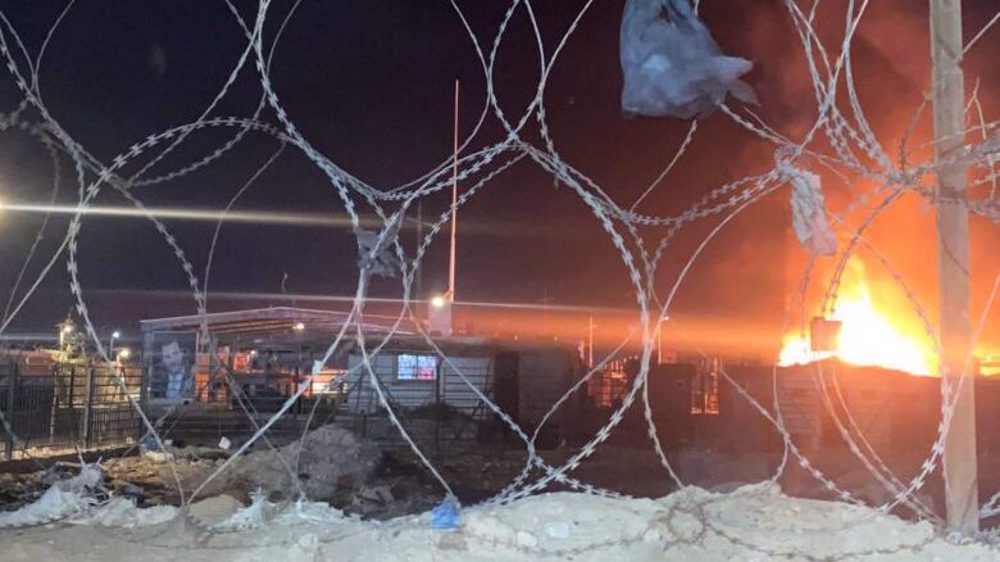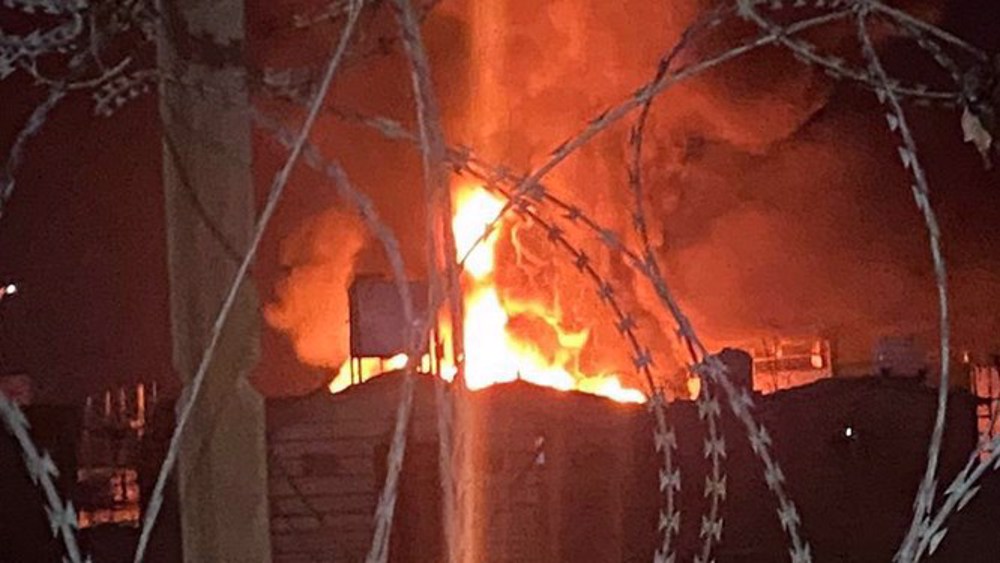Israeli military chief admits hand in strike on Lebanon-bound Iranian fuel convoy
The Israeli military chief of staff has confirmed that the Tel Aviv regime was behind an early November attack on an Iranian fuel convoy heading to Lebanon near the Syria-Iraq border, saying that the airstrike was carried out by the Israeli Air Force.
Lieutenant General Aviv Kochavi asserted during a conference at the Reichman University in the city of Herzliya north of Tel Aviv on Wednesday that Israeli intelligence had detected the convoy and launched the aerial assault.
“We could have not known a few weeks ago about the Syrian convoy passing from Iraq to Syria. We could have not known what was in it,” Kochavi told the conference.
He further claimed that “advanced capabilities” allowed Israeli pilots to carry out the strike.
He said such missions are often complicated by heavy anti-aircraft fire. “They need to attack. They need to strike. They need to return,” he said, adding, “They need to make sure in some of the attacks that they don’t kill whoever shouldn’t be killed.”
Iraqi security and border officials said an airstrike targeted a convoy of 22 tankers carrying Iranian fuel that had entered Qa’im border crossing on the Syrian side of the border with Iraq late on November 8.
Some reports said at the time that Israel was behind the strike, noting that at least two fuel trucks were destroyed as a result.
A huge blaze was seen on the Syrian side of the border, a security official said.
The convoy crossed the borders into Syria after obtaining “all necessary legal approvals from Iraq” and according to the transportation documents the Iranian fuel was heading to Lebanon through Syria, two border police officials noted.
Back then, a high-ranking official of the Lebanese Hezbollah resistance movement also said the United States prevented crisis-hit Lebanon from receiving the Iranian fuel shipment to ease power outages amid the deepening economic crisis in the Arab country.
“The US prevented Lebanon from receiving 600 thousand tons of Iranian fuel, estimated to be worth $350 million, which could provide 5 to 6 hours of daily power supply for several months,” Hezbollah Deputy Secretary General Sheikh Naim Qassem said in a post published on his Twitter page.
Iran has supplied fuel shipments to Lebanon via Syria since last year after Hezbollah asked for Iranian help to ease the energy shortage in the country.
Lebanon has been beset by a severe fuel crisis that has left many households and businesses struggling with recurrent power outages.
‘All wars have rules. All of those rules have been broken’ by Israel
VIDEO | Report flags India’s violation of rights of Rohingya detainees
Turkey's foreign minister meets Syria's de facto leader in Damascus
'Next to impossible' to rescue patients from Gaza's Kamal Adwan Hospital: Director
VIDEO | Vietnam current prosperity
Report blames gasoil exports for shortage at Iranian power plants
VIDEO | Hind Rajab Foundation names Israeli war criminals vacationing after Gaza genocide
VIDEO | Australians rally for Gaza ahead of Christmas festivities











 This makes it easy to access the Press TV website
This makes it easy to access the Press TV website